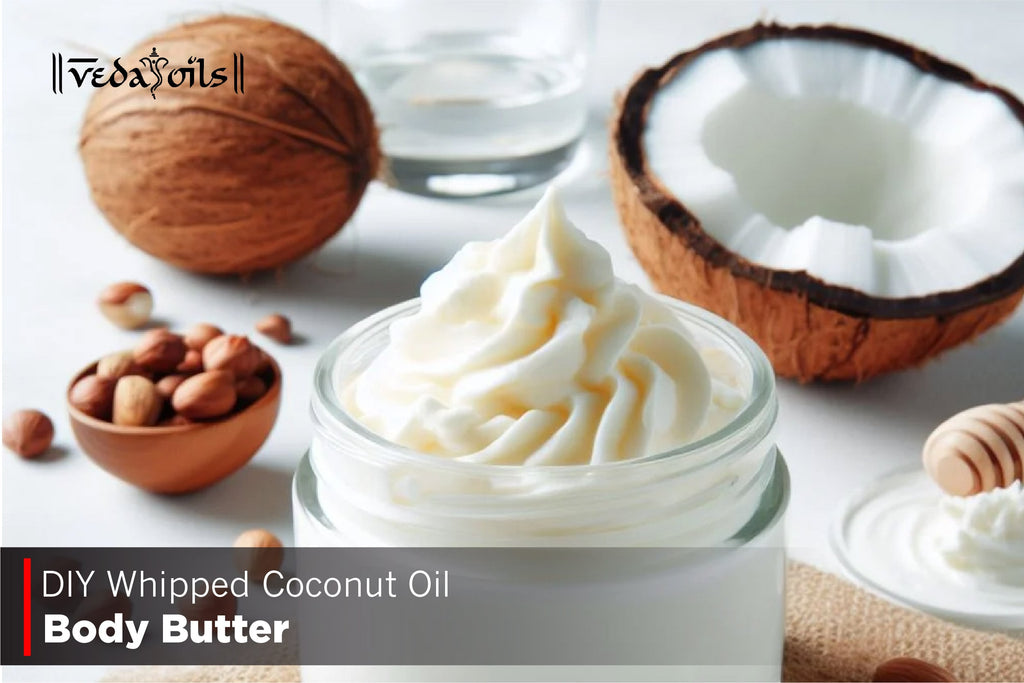Grapeseed Oil Vs Jojoba Oil - Which One Better For You?
Recently, people have begun focusing on different carrier oils, which has raised some confusion. One such oil is grapeseed oil, which is often used in skin care products due to its affordability and efficiency. Is grape seed oil comparable to jojoba oil, though? And which one ought to employ? Let's know about the difference between grapeseed oil and jojoba oil to determine which is superior.

What Is Grapeseed Oil?
Vegetable oil made from grape seeds is known as grape seed oil. Grapeseed oil can be used to moisturize dry, dull skin, even out skin tone, and lessen the visibility of fine lines and wrinkles. Because linoleic acid and vitamin E protect the skin from environmental harm, restore its elasticity, and aid in moisture retention, this is the case.
What Is Jojoba Oil?
Simmondsia Chinensis is a shrub that is native to southern Arizona, southern California, and northern Mexico. Its seeds yield jojoba oil, a liquid that has a variety of uses. Jojoba is immediately applied to the skin to treat sunburn, chapped skin, psoriasis, acne, and psoriasis. Additionally, it is applied topically to balding individuals to promote hair regeneration.
Difference Between Grapeseed Oil And Jojoba Oil
In this section of the essay, we'll examine how grapeseed oil and jojoba oil differ from one another despite sharing many characteristics with one that makes them effective carrier oils for treating skin and hair issues.
Grapeseed Oil Vs Jojoba Oil - Texture And Feel
So grapeseed oil is a great option if you're seeking a thin moisturizer. But choose jojoba oil if you want an oil that can keep your skin feeling smooth and silky all day.

As it's less heavy than jojoba oil and feels non-greasy, grapeseed oil is ideal for moisturizers.
Jojoba oil, on the other hand, might leave an oily residue on the skin since it is thicker (having a viscosity comparable to that of sebum).
Grapeseed Oil Vs Jojoba Oil - Heat Stability
The heat tolerance of these two oils is another distinction. Due to its non-sensitizing qualities, grapeseed oil can endure very high temperatures, but because jojoba oil has a considerably lower boiling point, it begins to degrade at lower temperatures (and even melts at very low temperatures).

In terms of practical applications, each oil has advantages and disadvantages.
Grapeseed Oil Vs Jojoba Oil - Contraindications And Allergies
Generally speaking, grapeseed oil is regarded safe for topical application, but if you use it on sensitive skin, you might encounter a few small adverse effects (such as dryness, stinging sensation, itchiness, redness of the skin, etc.).

To make sure grapeseed oil won't irritate your skin, test a small amount on a hidden area of your skin before purchasing.
When applied topically, jojoba oil is regarded as safe for both adults and children, however, some people may experience adverse responses.
Grapeseed Oil Vs Jojoba Oil For Hair
Choose jojoba over grapeseed oil when it comes to caring for your hair because of its quick absorption qualities.
Jojoba oil nourishes the roots of your hair from the inside, strengthening and thickening them over time. This can help decrease hair damage and stimulate growth. Because it's an excellent conditioner, jojoba oil is also to thank for those lustrous locks.

Since it includes vitamin E, flavonoids, linoleic acid, and oligomeric proanthocyanidin (OPCs), which are all essential for healthy hair development and vitality, grapeseed oil is a great option for your hair.
Grapeseed Oil Vs Jojoba Oil For Skin
When compared to other carrier oils, especially golden jojoba oil, grapeseed oil absorbs deeply into the skin as opposed to most other oils, which tend to sit on top.

Due to its deep penetration, the oil may operate continuously throughout the day without gradually being consumed by your skin. This makes it the perfect moisturizer for dry skin.
Additionally, it assists in enhancing the tone and texture of your skin while halting further aging or sun damage.
Grapeseed Oil Vs Jojoba Oil For Acne
Before applying any oil to your skin, do a patch test. Then, let's look at the acne elimination methods that work best.

When compared to jojoba oil, which is likewise high in vitamin E, amino fatty acids, and antioxidants, grapeseed oil has a higher concentration of linoleic acid, which is believed to alleviate inflammation and control breakouts.
Both oils effectively treat acne and lessen the likelihood of a breakout, but due to grapeseed oil's superior penetration power, pick it over jojoba oil.
Grapeseed Oil Vs Jojoba Oil - Which Is Better?
It is incorrect to choose one oil over the other because both have advantages and downsides and share certain similarities. Let's rate these oils based on how frequently people use them for their skin or hair. All skin types can benefit from jojoba and grapeseed oil, however, oily skin can benefit most from them.
Jojoba's capacity to control sebum production may also make it a better option for people with oily or acne-prone skin. Again, golden jojoba oil benefits the user in terms of hair care because it has more antioxidants, vitamins, and minerals than grapeseed oil and improves hair volume, shine, and general health. For purposes involving the skin and hair, pick golden jojoba oil rather than grapeseed oil.
How To Use Grapeseed Oil With Jojoba Oil?
The majority of skin and hair-related problems can be resolved by combining grapeseed oil and jojoba oil, which are both good on their own. We must provide you with a tiny toner in this section for the eradication of skin scars and acne.

Ingredient
- Grapeseed Oil - 1 Teaspoon
- Golden Jojoba Oil - 1 Teaspoon
- Lavender Essential Oil - 2 Drops
How to Make And Use
- Just combine jojoba oil and grapeseed oil in a small basin.
- Just 2 drops of lavender essential oil should be used (Optional, you can use any essential oil of your preference).
- To create a transparent solution, gently stir.
- Apply the solution to your face after placing the solution in your palm and warming it up.
- For optimal effects, use two to three times each week.
Conclusion
After knowing the difference between grapeseed oil and jojoba oil, now your question must be which one are you should be utilizing regularly, then? The choice is that works best for your circumstances is what matters. With VedaOils, select the best for yourself. Visit VedaOils.com for the best deals on cold-pressed grapeseed and jojoba oil of the highest quality.
Frequently Asked Questions
Q.1 Which Is Better Grapeseed Or Jojoba Oil?
Ans: Depending on the use, either oil may be successful, but golden jojoba oil is preferred over grapeseed oil for skin and hair care because of its high content of fatty amino acids, which provide unparalleled skin and hair care benefits.
Q.2 Is Grapeseed Oil Better Than Jojoba Oil?
Ans: Yes, in some cases, because grapeseed oil is less oily on the skin, absorbs readily, and penetrates the skin deeply. This makes it particularly effective in reducing the symptoms of eczema, psoriasis, and seborrheic dermatitis.
You May Also Like:
Buy Products
Related Articles
Disclaimer :- This article is intended for informational and educational purposes only and should not be considered a substitute for professional medical advice. For specific health concerns or treatment, please consult your personal physician. The article's editor, writer, and VedaOils organization do not assume any responsibility for any health outcomes resulting from the information provided. Readers are strongly encouraged to seek advice from their physician before acting on any recommendations made in these articles.

















 Sign in
Sign in Register now
Register now My Reward Points
My Reward Points









